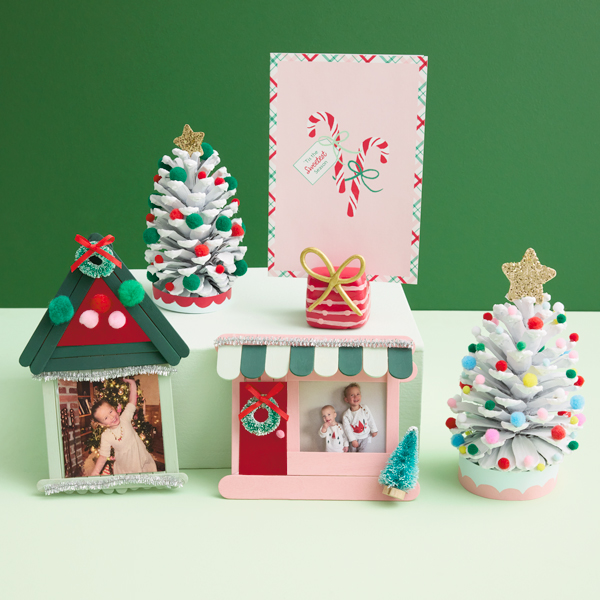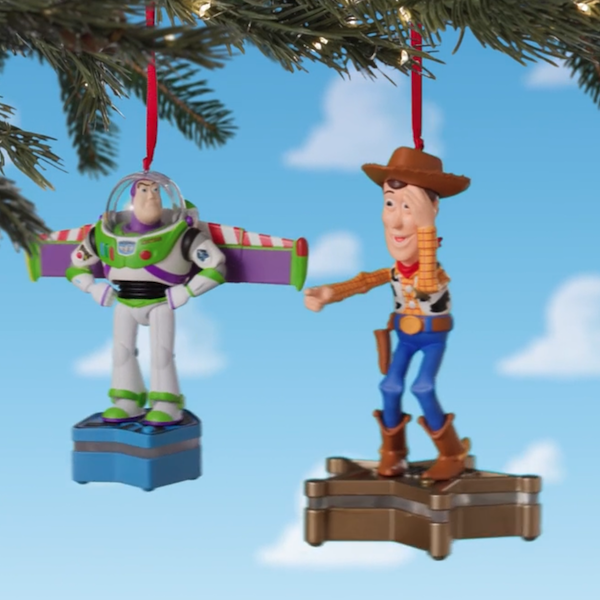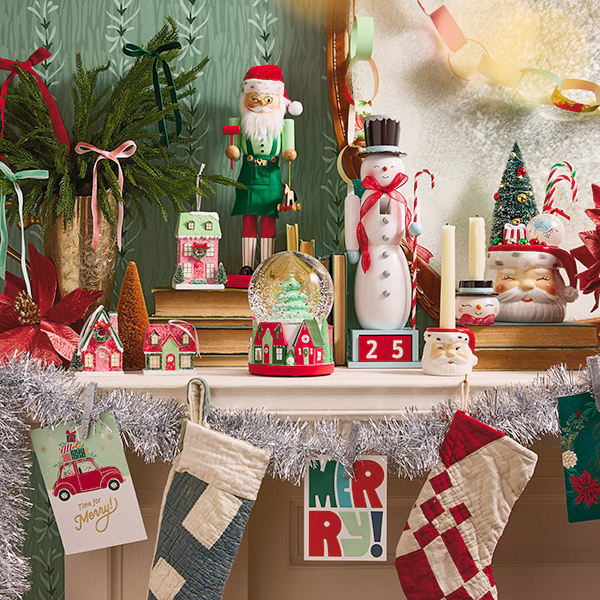Teaching kids gratitude
I think most parents are like me—we don’t want our kids to grow up with a sense of entitlement. Teaching kids gratitude is a good start. When they’re barely walking, we teach them to say, “thank you.” But pretty soon, they’re also saying “more” and “MINE.”
Where the heck does that even come from?
Inspired? Create and share by tagging @HallmarkStores.
We quickly realize they’re going to be little jerks if we don’t instill some of that gratitude. Bonus: Research shows an attitude of gratitude is healthy. Practicing thankfulness increases mental strength and improves psychological health.
It turns out gratitude is so much more than saying “thank you” or sending a note (although that’s good, too). It’s a way of living. So here are a few things we do in an attempt to (hopefully!) teach our children to be grateful for what they have.
Talk to kids about gratitude
Okay, I know “talks” are kids’ least favorite things—my tween would rather lose her internet connection than “have a discussion.” The answer is to keep it casual.
I searched online for quotes about gratitude. Every few days, I hung up a new one in the house. And while making dinner, I’d ask our girls what they thought it meant. How do they interpret the quote? Do they agree? It so often led to meaningful conversations and opportunities for teaching and opening up. And I think you’ll find that your kids have some pretty great opinions and insights.
Download our free printable gratitude conversation starters or find some of our favorite gratitude quotes.
Show kids how to express appreciation
Aside from gratitude for material things, it’s important to teach kids to be grateful for the love, affection and people in their lives. Being quarantined has been challenging for us—all at home together, all the time. But it’s also opened up opportunities for conversations about how lucky we are (and how grateful we should be) to have not only a comfy, air-conditioned home to live in, but also to have a family to laugh with, cuddle and play games with. A few ways to show gratitude to the loved ones in your lives:
- Tell them. Spend time drawing pictures or writing cards or notes to send to family and friends. Be sure to say why you’re grateful for them.
- Send love. Think of people you know who might be lonely or people you don’t talk to or see often. Write them a note just to say they’re on your mind. Encourage kids to send photos or a list of jokes or funny stories, too—anything that might brighten their day.
- Write cards and letters. There are plenty of folks who are deserving of gratitude these days—from health care professionals to grocery store workers and delivery folks to teachers. We’ve got tips for sending messages of appreciation.
Make these adorable mini-mailboxes to encourage sending notes between family members.
Keep a family gratitude journal
Sure, journaling might sound like just one more thing mom needs to get done. But this one is done together, so it checks the “quality time” box, too. Any notebook works—simply write down the date and something each member of the family is grateful for. It can be small (“The mail came on time and we have a lovely mail carrier!”) or big (“We are all healthy.”).
For fun, include pets: “Our cat Betsy is consistently grateful for dropped food at dinner.”
Check out how to start a kindness journal here.
Model grateful behavior
You are your kids’ greatest example (that’s a big yikes for me sometimes), so consistently demonstrate gratitude in your own life. If we’re gonna talk the talk, we’ve gotta walk the walk, right? So, let’s strut it!
- Don’t forget to say “thank you” at the drive-through window, “I appreciate it” to people who help you out and give a “thanks!” wave to other drivers who let you over in traffic.
- Look for ways to turn grumbles into moments of thanks. For example, when washing a sink full of dirty dishes (again), verbally express gratitude for hot, clean running water and plenty of food to eat on those dishes.
- When something goes wrong or doesn’t work out, try to find the good in the situation (admittedly, this can be tough). If you’re running late because of traffic, point out that you’re grateful to be safe and in a reliable car with plenty of gas.
It can be easy to lose sight of all the good we have in our lives—and just as easy to rattle off a long list of complaints. But I know most parents will agree that gratitude is an incredibly important virtue and so valuable in ensuring our children lead full and happy lives.
We’re all just doing the best we can raising these little beings. And I hope my kids grow up grateful for the lives they’ve had
Shop Kids Gratitude
See allYou may also like
See more-
Calendar Flip Spring Forward: March 2026 Holidays and Observances
Color us excited! From the wearin’ of the green and more sunny fun to colorful Holi festivals and celebrating crayons...
-
Calendar Flip Welcome a New Year: January 2026 Holidays and Observances
HAPPY NEW YEAR! If that hurt your head, you might have celebrated a little too much. When you’re feeling better, we h...
-
Calendar Flip Hello, Love: February 2026 Holidays and Observances
Let’s warm up this cold month with love and connections. From valentine cards to dressing up your pet, this month has...
-
Christmas 3 Christmas gift wrap ideas to match your holiday personality
If you’re anything like me, the holiday season can make you tap into different sides of yourself. Maybe you become th...
-
Gifting 60+ Peanuts® Snoopy gifts to help fans channel their favorite beagle
It was a dark and stormy night in the winter of 2015. I was 17 years old, overwhelmed with AP classes, senior-year st...
-
Christmas 3 Christmas kids craft ideas, plus activities for even more easy holiday fun
From decorating the house to baking cookies, the Christmas season gives us so many opportunities to get creative and ...
-
Christmas The best Christmas gift idea: Bikini Bottom BFFs
Got a bestie who's as silly as you? Or one who's there through all of life's storms with a smile? Then we think this ...
-
Christmas Which Disney Pixar character is your favorite? 🤔
Thankfully, with so many beloved Disney Pixar character Keepsake Ornaments, you won't have to choose a favorite this ...
-
Christmas Not having Cher on your tree? As if! 💅
If you're a Millennial, we predict you will be majorly, totally, butt crazy in love with this Clueless Keepsake Ornam...
-
Christmas 20 vintage Christmas ideas to turn up the charm this holiday season
When I think of my perfect Christmas, vintage vibes are always what come to mind first. Santa’s sleigh in a dreamy wi...
-
Christmas 20+ ideas to help you plan your trip to the Hallmark Christmas Experience
Ever wanted to step inside of a picture-perfect Hallmark Christmas movie? Or travel to a place where you could immers...
-
Christmas Sit fireside with the cutest snowfolks around!
A campfire might seem like the least likely place to find a few snowmen hanging out, but if it's cold enough, even th...
-
Christmas With so much magic, we can’t choose a favorite!
Every Keepsake Ornament is magical, but our ornaments with light, sound and music are in a class all their own. From ...
-
Christmas Stocking stuffer ideas for literally everyone on your list
The stocking stuffer struggle is real. By the time you’ve bought your main presents, you feel like you’re all out of ...
-
Christmas You love Keepsake Ornaments…we love rewarding you! 🥳
Collecting Keepsake Ornaments isn't just a hobby for you—it's a passion! And that kind of enthusiasm is something we ...
-
Christmas 60+ Christmas decorating ideas to deck your halls—and every other space!
If you’re searching for Christmas decorating ideas to make all your spaces extra jolly and put you in a merry mood, y...
-
Christmas Dance your way to Christmas morning 🦛🎄
Keep little ones giggling and grooving all holiday break-long with this musical dancing Christmas hippo plush! Does i...
-
Winter Lean into the Season: winter ideas to make the season bright and extra cozy
There are two types of people in this world: those who love winter and those who’d endure an eternity of wearing wet ...
-
Christmas What happens when you put a Keepsake Artist in front of the camera? 🤔
Keepsake Artists are masters of turning everyday moments into cherished Christmas memories, in the form of beautifull...
-
Christmas Get ready—the Grinch is headed your way for the holidays! 💚
He'll snatch up your boxes. He'll snatch up your bags. He'll rifle through presents, regardless of tags! But one thin...





















